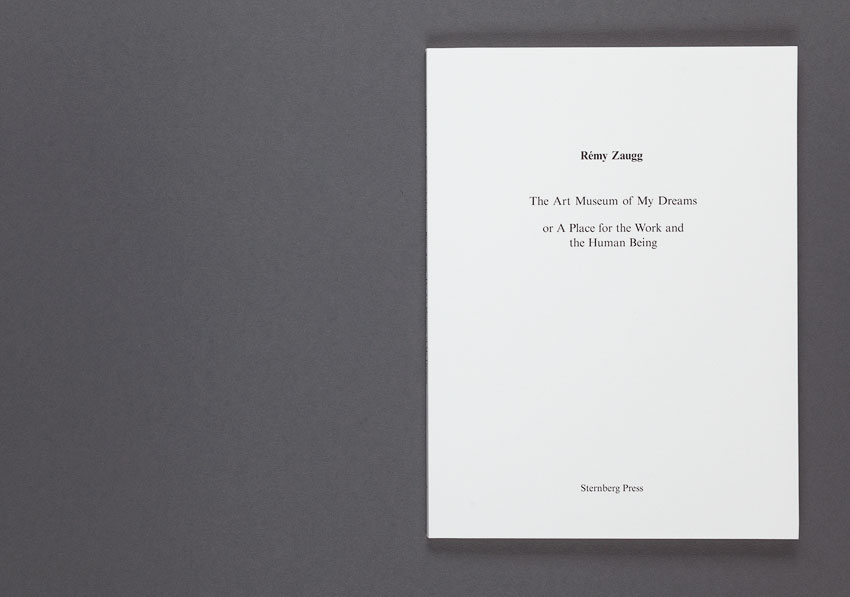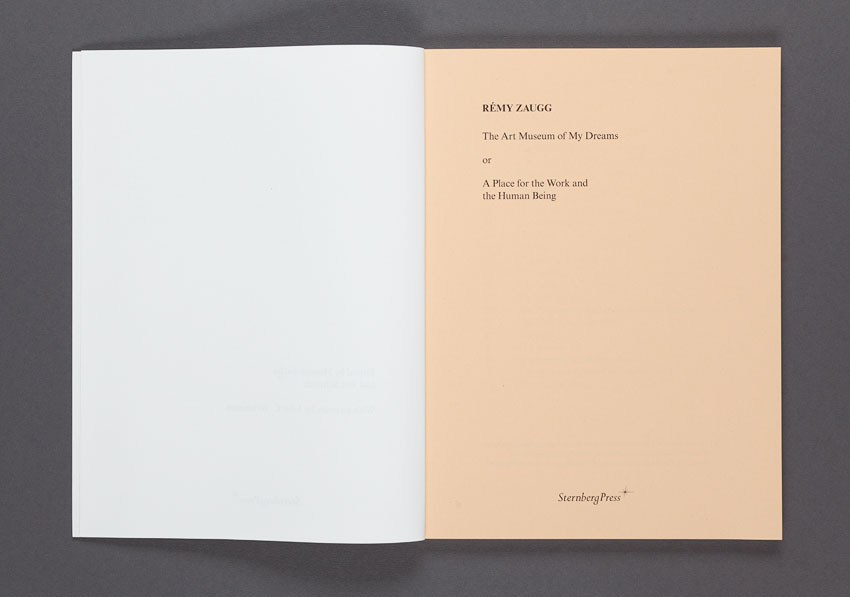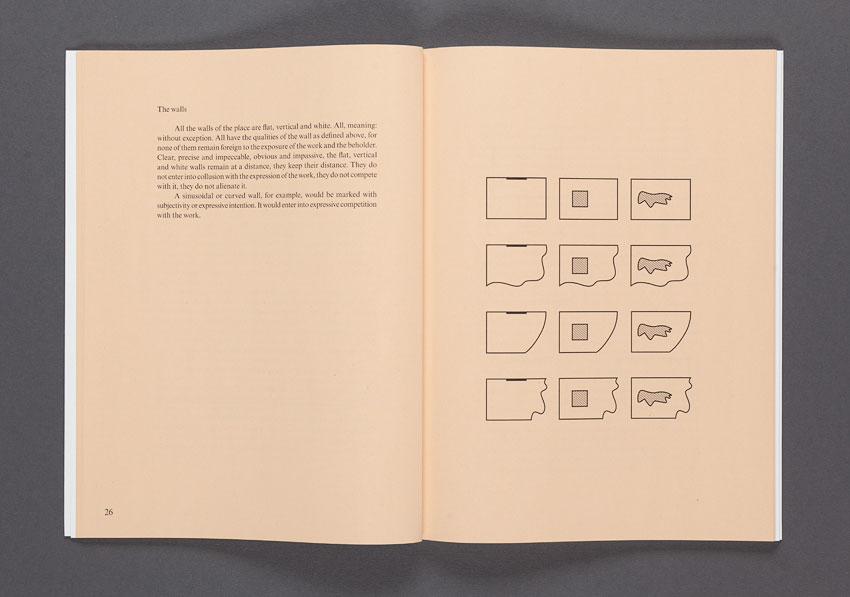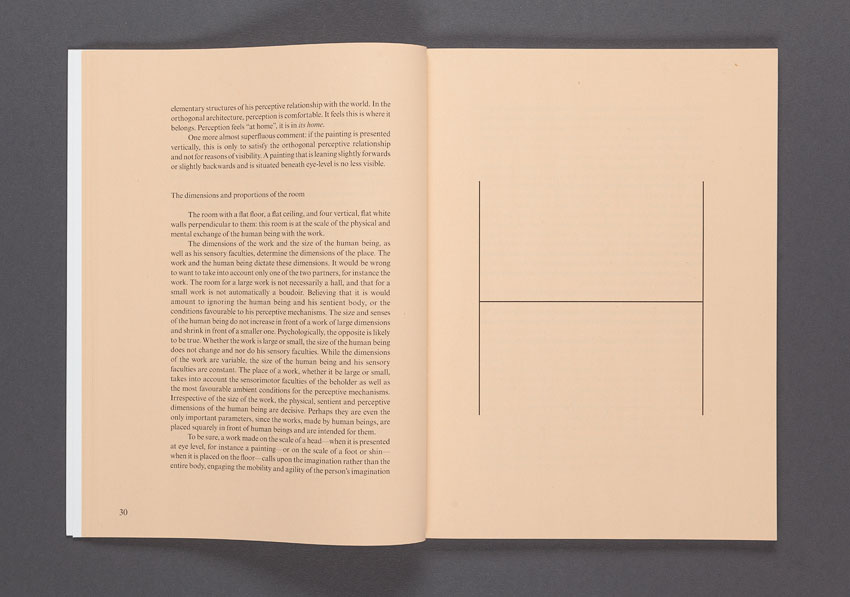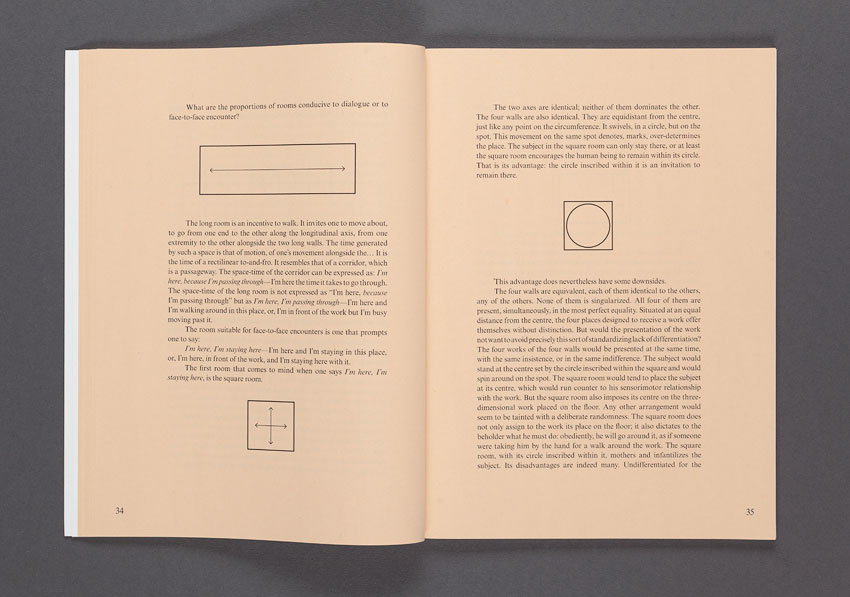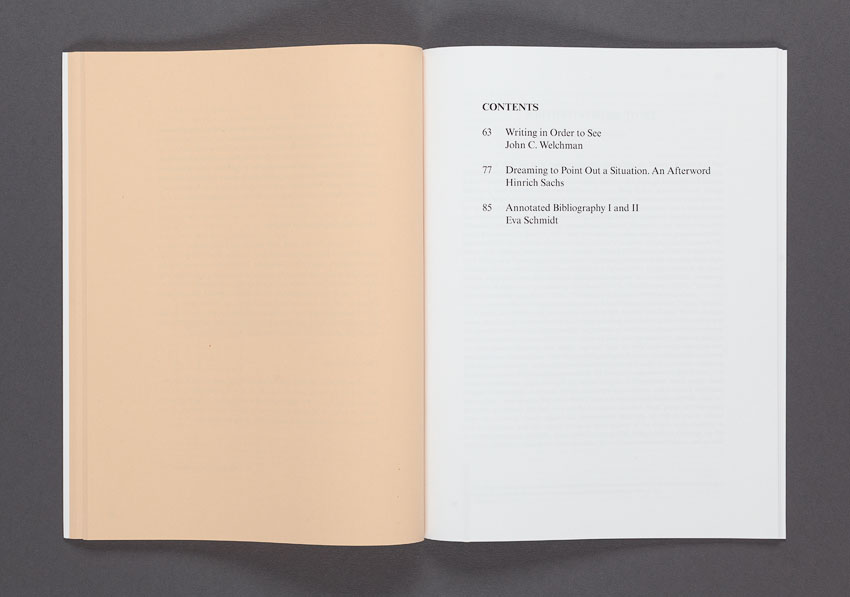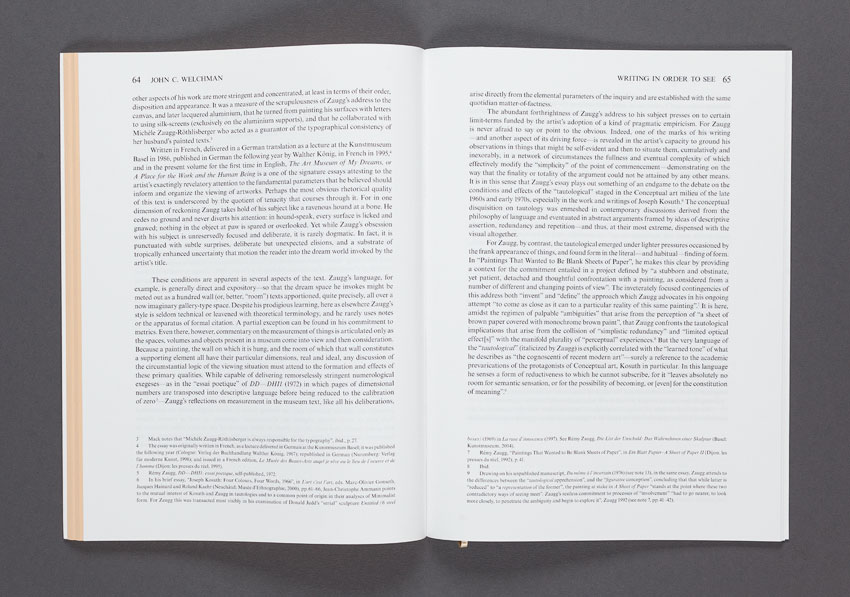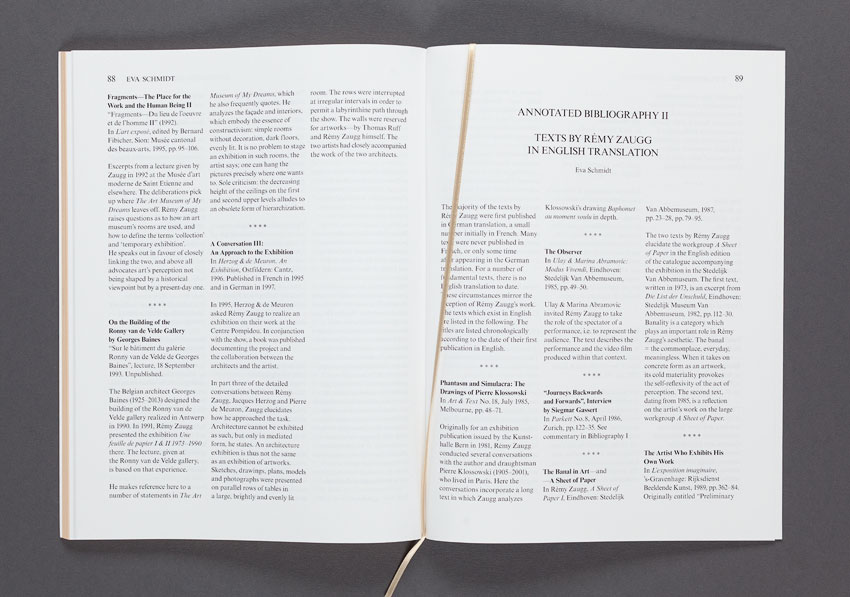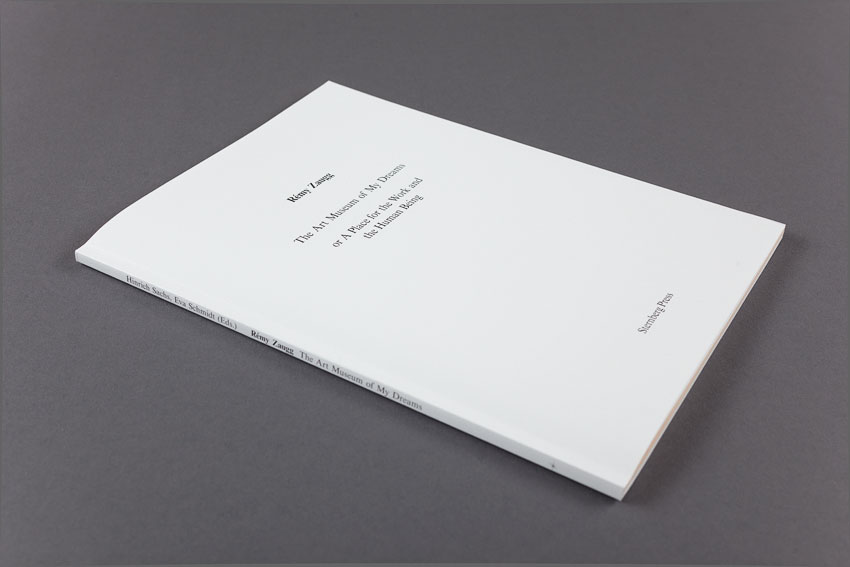In his influential 1986 text, now translated into English for the first time, Swiss artist Rémy Zaugg (1943–2005) laid out fundamental ideas on the art museum. For him, the museum is an everyday tool that enables the encounter between viewer and work—raising the question of the kind of architecture appropriate for such a space. The text systematically addresses the floors, walls, and ceilings, as well as the proportion of the rooms, the position of the entrances, and the arrangement of the halls in the building. Against the backdrop of the postmodern gimmickry of new museums designed by self-obsessed architects, Zaugg advocates for a complete reflection on the museum’s function in order to arrive at a suitable architecture.
Included in this publication are texts by John C. Welchman and Hinrich Sachs and an annotated bibliography by Eva Schmidt, all of which contextualize the piece within Zaugg’s oeuvre, situate him in the artistic tendencies of the twentieth and twenty-first centuries, and cast a contemporary perspective onto his thought and work.
